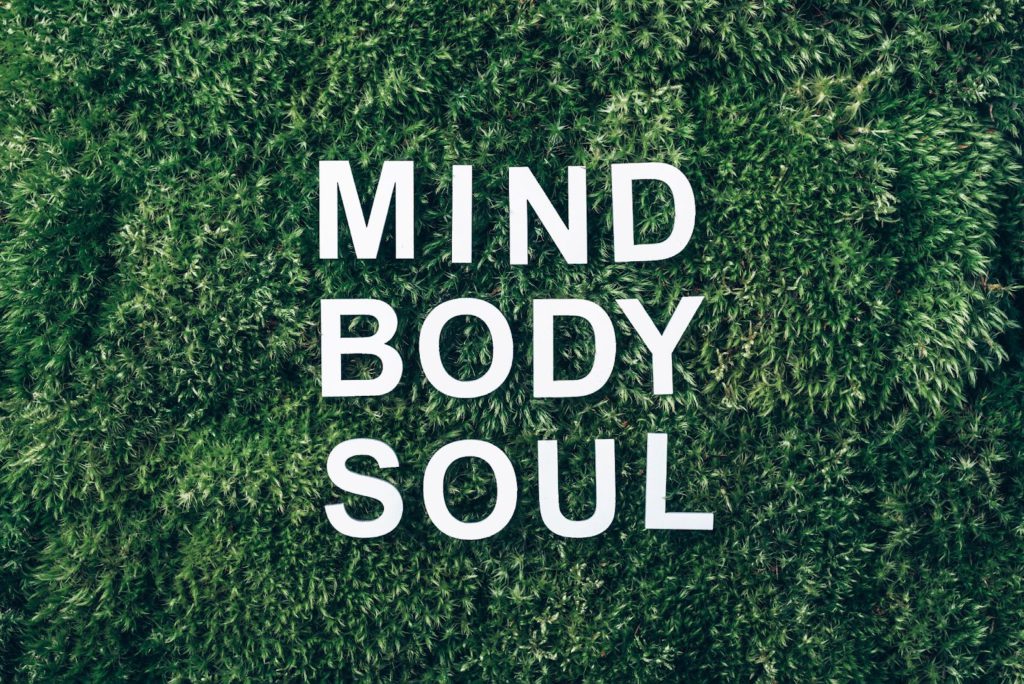There are more connections in the brain than stars in our solar system. The brain is firing and processing information every moment of life. It is taking in information from the outside world and stimuli from our internal body. The brain serves as the maestro, conducting a symphony of signals that traverse the complex network of the body and world.
As we grow from infancy, these connections grow and form patterns to interpret the experience of life. This harmony shapes how we perceive the world, ourselves, and our options to move through each day. The connection between the brain and body is rarely discussed, but this connection is pivotal to understanding ourselves and supporting our overall health and wellness. In this exploration, we delve into the captivating realm of the brain-body connection, uncovering the awe-inspiring interplay that defines our very being.
The interconnectedness of the body

Our body is made up of many organ systems that are influenced by the needs of the body to remain in a degree of homeostasis. Rather than operating in isolation, these systems collaborate seamlessly to maintain homeostasis, the delicate equilibrium necessary for our well-being.1 Below is a brief overview of these systems:
The nervous system: This intricate network is the communication highway between the brain and the body. The central nervous system, consisting of the brain and spinal cord, orchestrates responses to external and internal stimuli. The peripheral nervous system extends these responses to every nook and cranny of the body.1
The endocrine system: The endocrine system consists of glands that produce hormones. Hormones act as a messenger system between the brain and the body. Hormones also regulate a myriad of processes, from metabolism and growth to stress responses and reproduction.1
The immune system: Our immune system safeguards us from internal threats, detecting and neutralizing invaders. This system also communicates with the brain, influencing our mood and overall well-being.1
The circulatory system: The heart, veins, and arteries compose the circulatory system, which is responsible for transporting nutrients, oxygen, and waste products throughout the body. This system’s rhythm affects brain function and overall vitality.1
The digestive system: The mouth is the origin of our digestive system. Food is broken down by chewing, and enzymes in saliva also begin acting on the food that is ingested. But, this process starts with chemicals released in the stomach when it is empty. The sensation of hunger is the response to these chemicals, and we are driven to find something to eat.1
The endocrine system: The endocrine system is influenced by the types of food consumed, which can impact mood. The intestines, where the majority of the food is broken down and absorbed, are also the source of essential neurotransmitters such as serotonin, which also affects mood. In recent years the gut has been called the second brain by researchers due to the number of nerve endings in the area and its connection and influence on mood.2
How the body communicates with the brain
Communication between the body and brain is a speedy process of receiving, interpreting, and responding to signals. The efficiency of this connection is increased by the brain having learned responses to stimuli. This occurs through feedback loops. Having quick reactions to everyday experiences saves both time and energy. These processes occur every moment and are recognizable in an individual’s posture, speech, and behaviors.
These processes are able to occur, in part, due to our internal sensory receptors. Nerves scattered throughout the body detect changes in temperature, pressure, pain, and other sensations. These receptors transmit information to the brain via the nervous system. Then, specific areas of the brain provide connection and context to make meaning out of the sensation, and to connect our mind to what is needed. The storage of information in our body and how the brain interprets the information allows us to respond to stimuli and navigate our environment quickly and efficiently.3
Beyond sensory cues, the body communicates through chemical messengers. The endocrine system secretes hormones that traverse the bloodstream, delivering messages to target cells and organs. These hormonal messages regulate everything from our sleep-wake cycle to our stress responses.
How the body affects the brain

The body’s influence on the brain extends far beyond relaying information. Physical activities, nutrition, and even sleep profoundly impact brain function. Here are a few examples of physical experiences and bodily sensations that influence how we perceive the world and ourselves.
Physical Activity
Exercise doesn’t just sculpt muscles; it also stimulates the release of neurotransmitters like endorphins and serotonin. Our bodies are designed to move. Our modern world often limits our ability to enjoy the outdoors or get the amount of movement we need each day. Limited mobility and exercise can cause muscular imbalances leading to dysfunction and pain. The lack of regular exercise can also result in the experience of increased stress and decreased mood.4
Nutrition
The foods we consume impact brain health and cognition. Everything we eat is broken down and either absorbed or eliminated from our bodies. The body needs nutrients from food to support its every function. Amino acids from proteins support muscle recovery and function. Many amino acids are also turned into neurotransmitters essential for mood stability and brain function. Nutrients like omega-3 fatty acids and antioxidants support brain function as well. When we aren’t providing our bodies with the proper nutrition, there can be noticeable changes to an individual’s mood and energy levels, leading to cognitive decline.4
Sleep
Sleep’s restorative role is evident in the body’s relationship with the brain. During sleep, the brain detoxifies, consolidates memories, and recharges. Sleep disturbances can be caused by muscle tension, physical sensations related to stress and anxiety, or digestive distress. When sleep is disturbed, there can be noticeable and even significant changes in an individual’s ability to think, problem-solve, plan for the future, and connect with others. If sleep disturbances are consistent and prolonged, there are correlations to mood disorders such as anxiety and depression.5
How the brain affects the body
Just as the body wields influence over the brain, the brain also significantly influences our physical health and sense of well-being. Emotional experiences in the brain translate into physiological responses in the body. For instance, ruminating thoughts that manifest negative emotions trigger the release of cortisol, which can affect digestion, immune function, and more.
The brain’s impact on the body is clearly demonstrated in the placebo effect. The belief in a treatment’s effectiveness can trigger physiological responses, demonstrating the potent connection between cognition and bodily reactions.4
Health when there is brain-body connection

Optimal health thrives when the brain and body synchronize harmoniously. A strong brain-body connection contributes to overall physical well-being. This connection helps us respond appropriately to injuries, illnesses, and stressors and supports a robust immune system, efficient metabolism, and cardiovascular health.
The brain-body connection is a cornerstone of mental health. Emotional awareness cultivated through this connection promotes emotional regulation, resilience, and a positive outlook on life. A healthy brain-body connection enhances cognitive function. Improved blood flow, neurotransmitter balance, and hormonal regulation contribute to clear thinking, memory retention, and efficient problem-solving.1
How and why there can be disconnections
To understand how valuable the connection between our brain and body is, it is important to understand how or why there are disconnections. This is an area that extends beyond this blog but below is a brief overview of areas that affect our brain-body connection:
Chronic Stress and Mental Health Disorders
Chronic stress, anxiety, and depression can fracture the brain-body connection. When we are focused on the large pressing challenges in life, it becomes difficult to notice the subtle signaling and changes in our bodies. All mental focus is centered on overcoming real or potential stress, and over time it becomes a habit to stay focused on the future, life’s challenges, and preparing for the worst.
Our body adapts to life experiences and responds when we are feeling stressed. If stress is a chronic feature, the areas of the brain responsible for managing stress will increase in the number of neuron connections and the ones that are less relevant to survival diminish.
There is no positive adaptation to chronic stress. Growth occurs when there is a sense of safety, and if we encounter one threat after another –whether it’s finances, relationships, or work – we will remain trapped and reactively functioning instead of flexibly adapting to life.3
Trauma
Physical or emotional traumas have an impact similar to that of chronic stress. Trauma, by definition, creates a lasting impression on an individual that changes how they experience themselves, the world, and their life. Trauma can cause symptoms of dissociation, a disconnection from bodily sensations.

The stress of an experience or recurring experiences can significantly impact an individual’s physical and emotional self. The memory of the trauma is so extreme that any external or internal sensation that reminds the individual of the experience triggers a cascade of emotional and physical reactions in response. These reactions happen automatically and often without any control. The individual responds as if the event was occurring or will reoccur at any moment, so the brain and body prepare the individual. Disconnection serves as a protective mechanism in times of extreme stress but impedes recovery in the long term.3
Social Pressures
Being social is built into human DNA. We wouldn’t have endured and grown as a species without our ability to communicate, connect, and form relationships. This innate drive can also pressure individuals to behave outside of what’s healthy for themselves. When driven to achieve and get recognition, we might limit our body awareness to push ourselves to reach our goals. This may be seen in careers, family life, or even athletics.
The same challenge is present in more community-oriented cultures. Individuals may lose themselves because the group is more important than the individual’s needs. Here we can see how these imbalances can impact how connected an individual is to their own sense of self and well-being.
Holistic healthcare’s goal to support balance and connection
Holistic healthcare recognizes the symbiotic relationship between the brain and body, striving to nurture this connection. Below are a few recommendations to consider as you strive to cultivate a greater connection with yourself and facilitate overall health and wellness:

Mindfulness and Meditation
Mindfulness practices foster awareness of bodily sensations, emotions, and thoughts. They also can help us activate our vagus nerve which plays an important role in our body’s ability to rest and digest. Mindfulness and meditation support present-centered body awareness and promote self-regulation to support the brain-body connection.
There are many different types of mindfulness practices and ways of meditating. Some of the most common practices include breathing exercises or breath work, such as 4:8 breathing, and guided meditation. Not every practice will support everyone. Be curious and open with yourself to feel an activity as you perform it to support finding the right one for you. What will suit your needs and goals and help you slowly reconnect with yourself?2
Nutrition and Physical Activity
Holistic healthcare emphasizes balanced nutrition and regular physical activity to enhance brain function, emotional well-being, and overall vitality. Everything new can feel like a challenge, and it can be incredibly beneficial to speak with healthcare professionals before engaging in new activities or making changes to your diet to ensure you’ll contribute to your health and not risk harm. Health coaches and other practitioners can also help you along your journey. Nutritional support and physical activity undeniably support mind-body connection and health.3
Mind-Body Therapies
Therapies like yoga, tai chi, and qigong foster a profound brain-body connection. These practices promote relaxation, balance, and energy flow. Combining mindfulness and physical activity is a great way to be present and connected with your body. These specific practices can support individuals to slow down and be fully present in the experience of their bodies.
If you’re open and curious about any of these practices, learn more about them and find out how you can try them in an easy and supported way. Body-centered movement practices can support a deep sense of connection, relaxation, and energetic aliveness.2
Conclusion
The brain-body connection is a masterpiece of nature’s design –an intricate web of communication and influence that defines our existence. From the tingling sensation of touch to the surge of emotion in our hearts, this connection shapes our experiences, health, and essence. Nurturing this connection through mindfulness, holistic practices, and a deep understanding of its intricacies offers us a path to balance, vitality, and a profound sense of well-being. As we unravel the mysteries of the brain-body connection, we uncover the keys to living a life in harmonious alignment with our physical and mental selves.

References
- Lesondak D. Fascia – What It Is, and Why It Matters, Second Edition. Jessica Kingsley Publishers; 2022.
- Watts C. Yoga Therapy for Digestive Health. Singing Dragon; 2018.
- Avery J, Zappetti D. Medical Student Well-Being. (Zappetti D, Avery JD, eds.). Springer International Publishing; 2019. doi:https://doi.org/10.1007/978-3-030-16558-1
- Schleip R. Fascia: The Tensional Network of the Human Body: The Science and Clinical Applications in Manual and Movement Therapy. Churchill Livingstone/Elsevier; 2012.
- Reed RG, Raison CL. Stress and the Immune System. Environmental Influences on the Immune System. Published online 2016:97-126. doi:https://doi.org/10.1007/978-3-7091-1890-0_5
